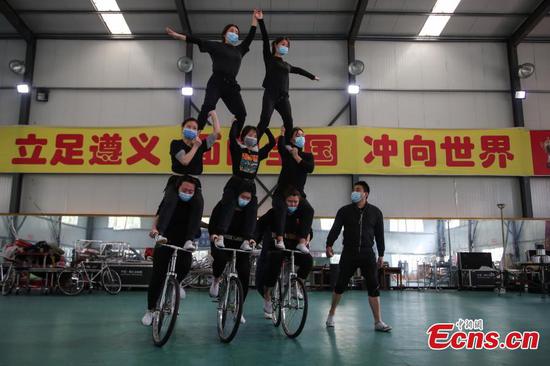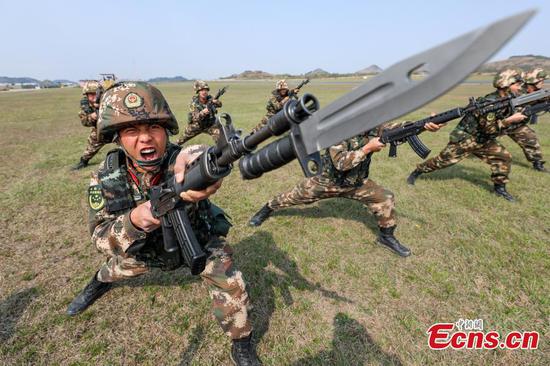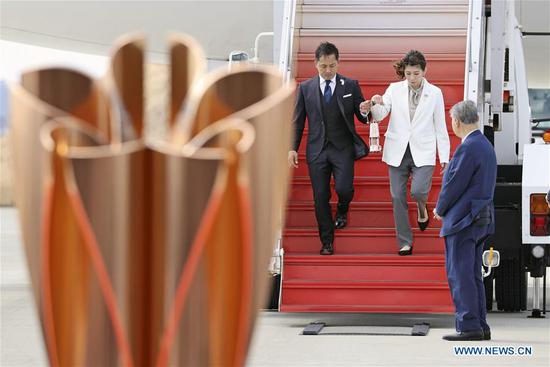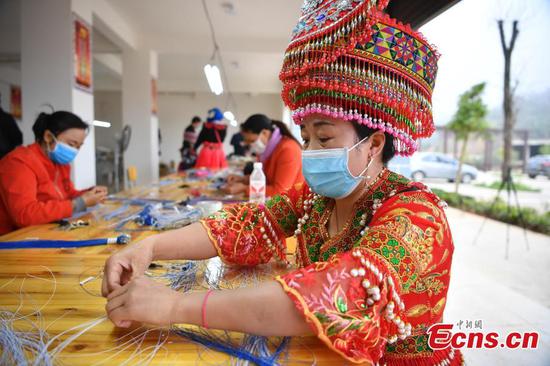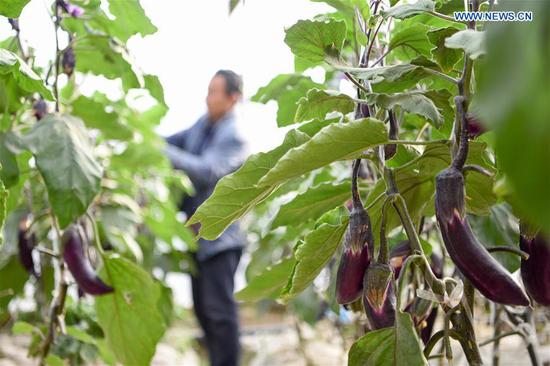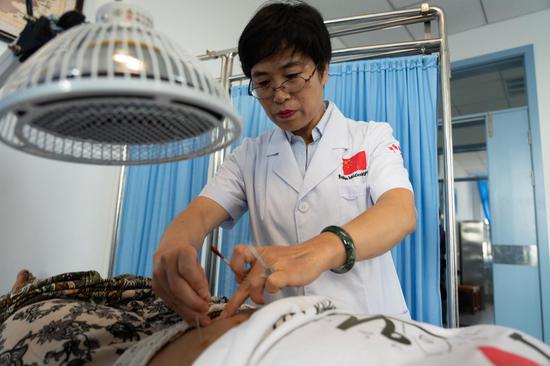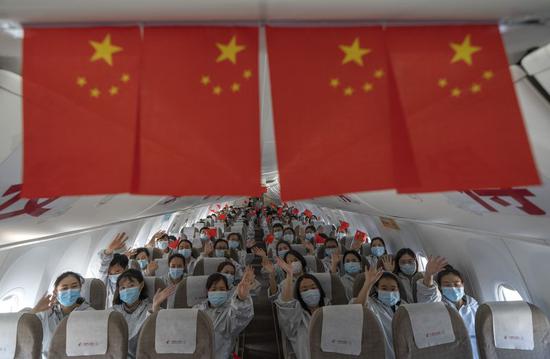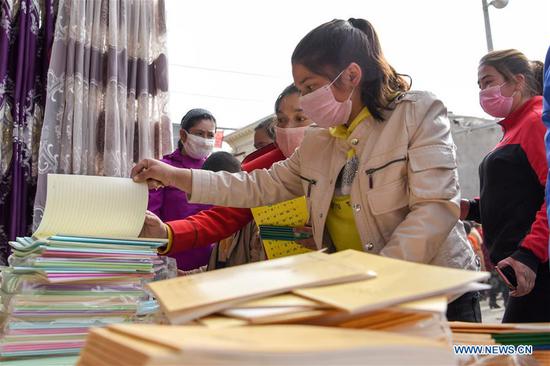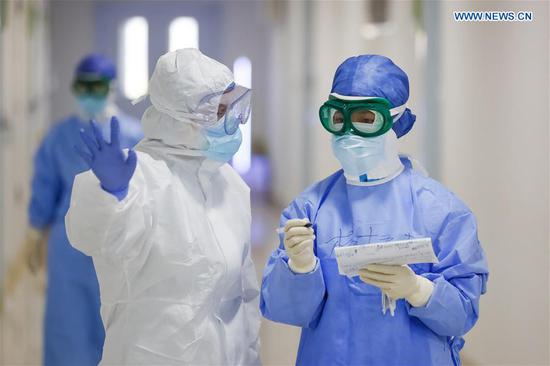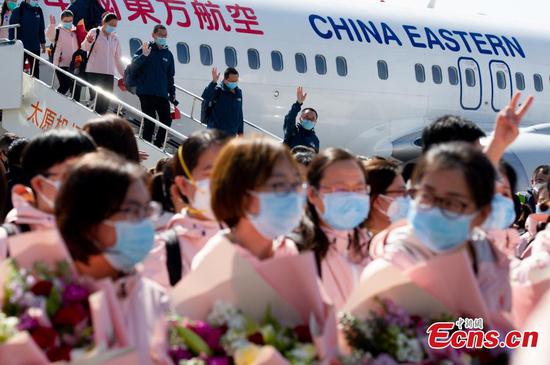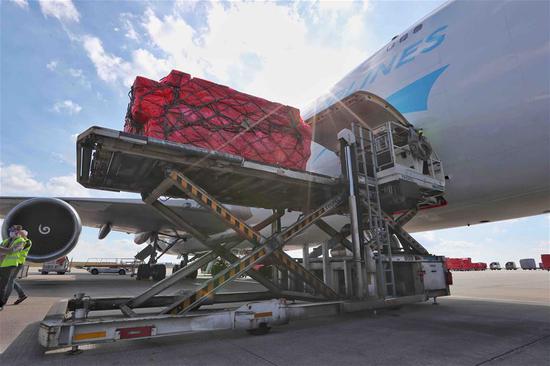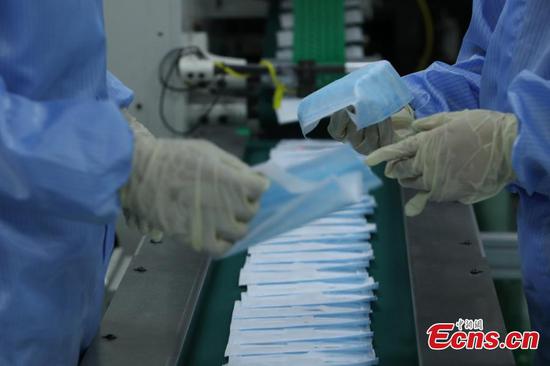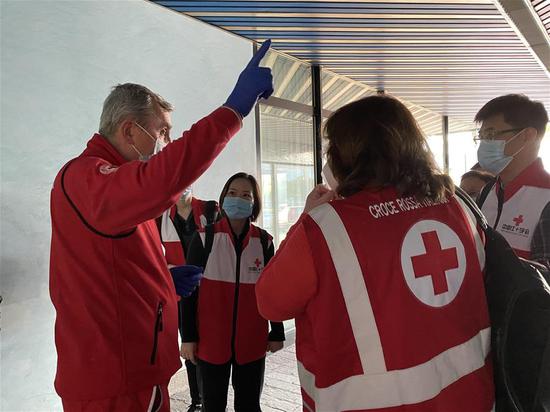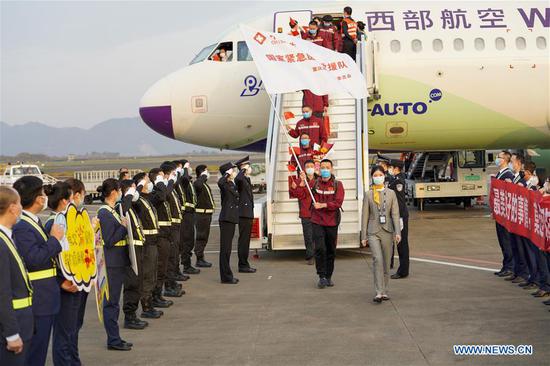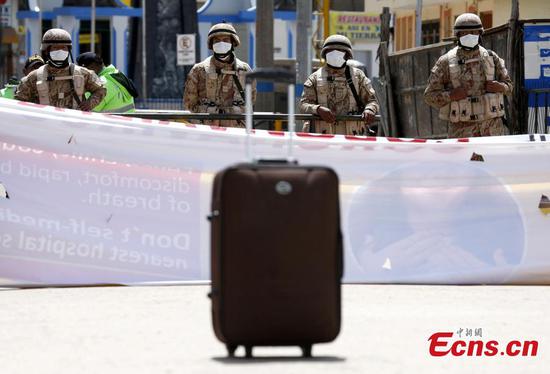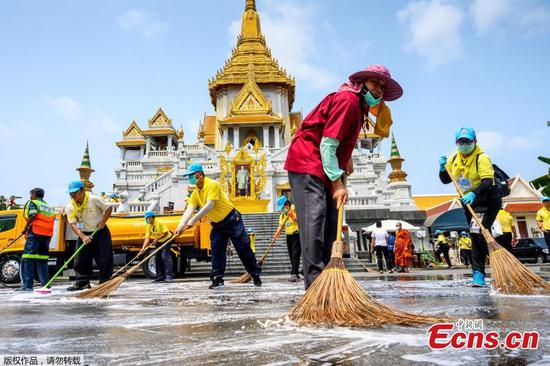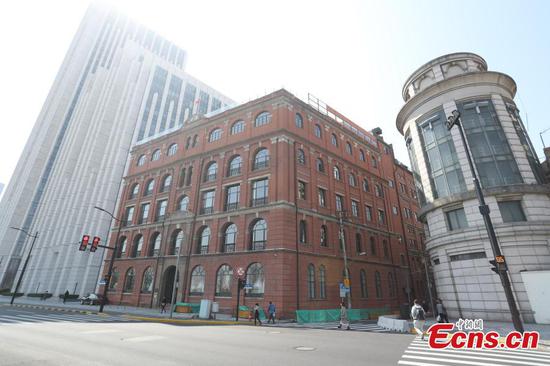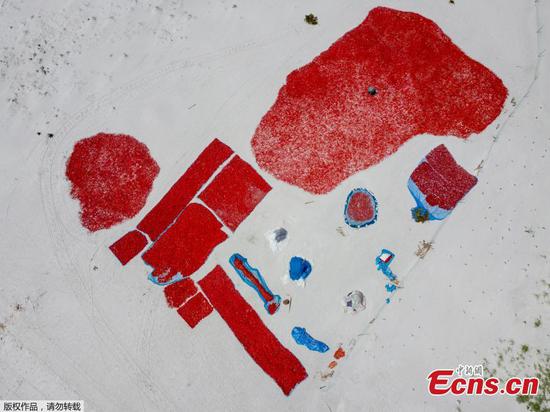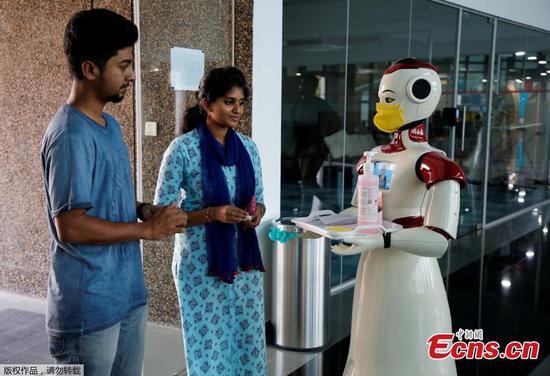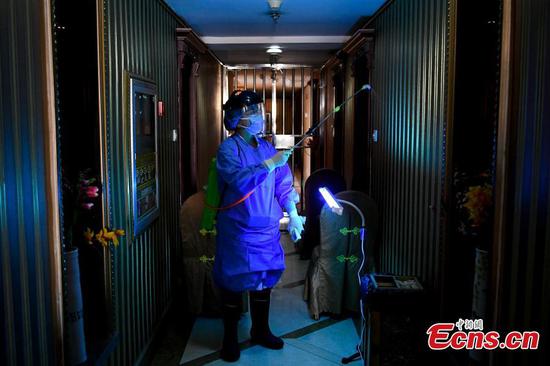NEW BATTLEGROUNDS
China's economy became a new battleground as the war against the virus wore on, delaying the reopening of plants after the Spring Festival holiday and causing a shortage of workers with the nationwide traffic restrictions in place.
China has about 170 million rural migrant workers employed away from their hometowns, many of whom could not return to work as enterprises across the country began to resume production on Feb. 10.
In response, local governments have arranged chartered flights and trains to take workers directly to the factories while issuing subsidies to tide companies over difficulties. By early March, the southern manufacturing heartland Guangdong Province had seen 91.2 percent of firms resume operation.
Almost every sector of Chinese society has chipped in on the anti-virus fight, from barbers offering medics free haircuts to factories revamping their assembly lines to produce medical masks.
According to the Ministry of Industry and Information Technology, China's output of protective clothing has surged to 500,000 pieces per day from fewer than 20,000 pieces at the beginning of the outbreak. The daily output of N95-rated medical masks rose from 200,000 to 1.6 million, while that of regular masks reached 100 million.
"China's economic and social development over the past decade has laid a sound foundation for the fight against the epidemic and enabled the society to mobilize more quickly," said Tang Bei, an international public health researcher at Shanghai International Studies University.

A staff member introduces an AI digital infrared thermometer at a building in Beijing, capital of China, March 16, 2020. (Xinhua/Ren Chao)
China's tech boom also made contributions -- tech companies rolled out disinfecting robots, thermal camera-equipped drones and AI-powered temperature measurement equipment, which have been rapidly deployed to reduce the risks of cross-infection.
The outbreak has led to what is being called "the world's largest work-from-home experiment." The number of online meetings supported by Tencent Meeting on Feb. 10, when most enterprises started resuming work, was 100 times that of its previous average daily use.
Lu Chuanying, a researcher with Shanghai Institutes for International Studies, said digital technologies have risen to the fore, not only in the country's anti-virus efforts but also in the recovery of the virus-hit economy.
"Remote consultations, artificial intelligence and big data were used to contain the epidemic, while telecommuting, online education and online vegetable markets have kept our lives in quarantine going," Lu said.
EXPERIENCE AND SOUL-SEARCHING
Bruce Aylward in an interview with The New York Times commended China's counterattack against the epidemic, saying it can be replicated but requires speed, money, imagination and political courage.
Aylward praised China's mobilization capability. "They're mobilized, like in a war, and it's fear of the virus that was driving them. They really saw themselves as on the frontlines of protecting the rest of China and the world," Aylward was quoted as saying.
As the COVID-19 evolved into a pandemic, the Chinese government has promised to share its experience and offer medical supplies including masks and test kits to other hard-hit countries.

Staff members prepare medical supplies to be delivered to Japan and South Korea at a customs warehouse in Shenyang, capital of northeast China's Liaoning Province, March 15, 2020. (Xinhua/Pan Yulong)
The country's focus on cutting transmission routes and giving timely treatment to confirmed cases has proved a universal golden rule in epidemic containment, said Tang Bei.
Tang also noted China's close cooperation and information sharing with the WHO and neighboring countries early on. China shared the full genome sequences of the new virus with the WHO and the international community soon after identifying the pathogen on Jan. 7.
"International cooperation is a key feature of China's battle with the coronavirus, and it should be an element of all other countries' epidemic responses," she said.
The expert said the outbreak also exposed problems in China's health sector, including weakness in grassroots health systems, poor emergency responses of some local governments and the absence of private hospitals in a public health crisis.
As for legacies in the long run, Lu said the epidemic has greatly raised public health awareness and promoted medical knowledge in China. There have been growing calls among the Chinese public for enhanced wildlife protection, which will help wean the traditions of eating bushmeat in some areas, he said.
For now, the news may come as a balm for many people in Wuhan, who have made huge sacrifice in the months-long quarantine.
"What I want now is to hug my parents and have a good cry," said Huang. "In the past, I cared more about making money, but now I understand how important it is to be healthy and with my family."









